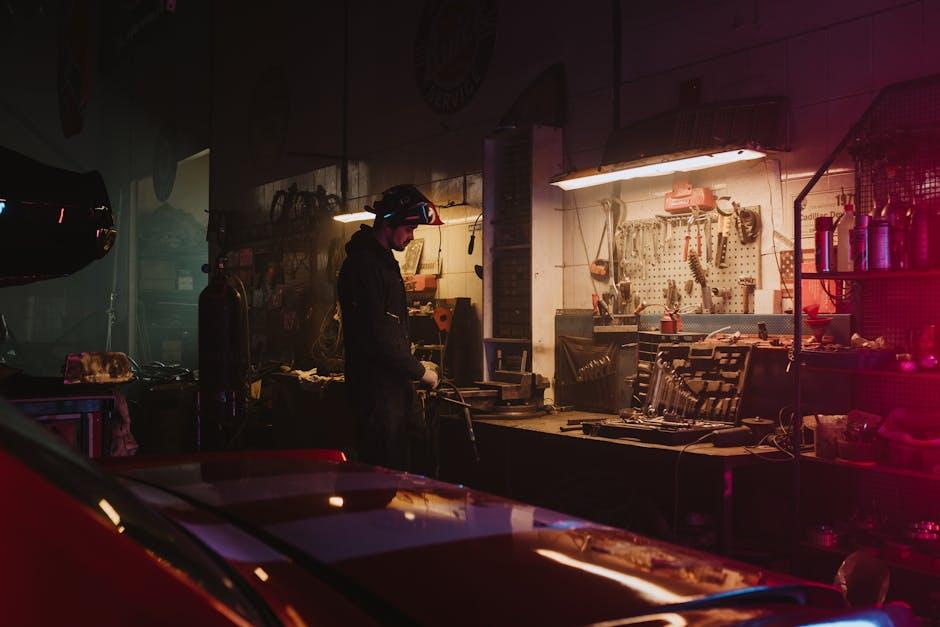When your car sputters, stalls, or simply refuses to cooperate, the quest for a trustworthy auto repair shop suddenly feels more urgent—and more daunting—than ever. Behind every creak and clunk lies the need for expert hands and honest advice, yet not all garages are created equal. Choosing a reliable auto repair shop isn’t just about convenience or the lowest price; it’s about finding a partner who combines skill, integrity, and transparency to keep you safely on the road. In this article, we’ll navigate the roadblocks of uncertainty, helping you steer confidently toward a repair shop you can trust.
Table of Contents
- Identifying Credentials and Certifications for Trustworthy Service
- Evaluating Customer Reviews and Reputation in Your Community
- Understanding Transparency in Pricing and Service Estimates
- Assessing the Expertise and Specialization of Technicians
- Exploring Warranty Policies and Post-Repair Support
- Visiting the Shop: What to Look for in Facilities and Customer Care
- Q&A
- The Conclusion

Identifying Credentials and Certifications for Trustworthy Service
When selecting an auto repair shop, verifying the credentials and certifications of its technicians is a crucial step. Trusted shops often display certifications from recognized organizations such as the National Institute for Automotive Service Excellence (ASE), which indicates that mechanics have met rigorous industry standards. Additionally, look for affiliations with manufacturers, as these shops receive specialized training and up-to-date knowledge on specific car brands, ensuring higher quality work.
It’s also helpful to be familiar with common industry badges and licenses, as these serve as genuine markers of professionalism and expertise:
- ASE Certification – validated skill and knowledge in automotive repair.
- Bureau of Automotive Repair (BAR) License – required in many states to operate legally.
- Manufacturer Training Certificates – demonstrates specific vehicle brand expertise.
- Environmental Compliance Certificates – proves eco-friendly disposal and recycling practices.
| Certification | What It Ensures | Typical Validity |
|---|---|---|
| ASE | Mechanic proficiency and technical skills | 5 years |
| BAR License | Legal operation and consumer protection | Annual renewal |
| Manufacturer Training | Specialized brand repairs and updates | Varies by manufacturer |
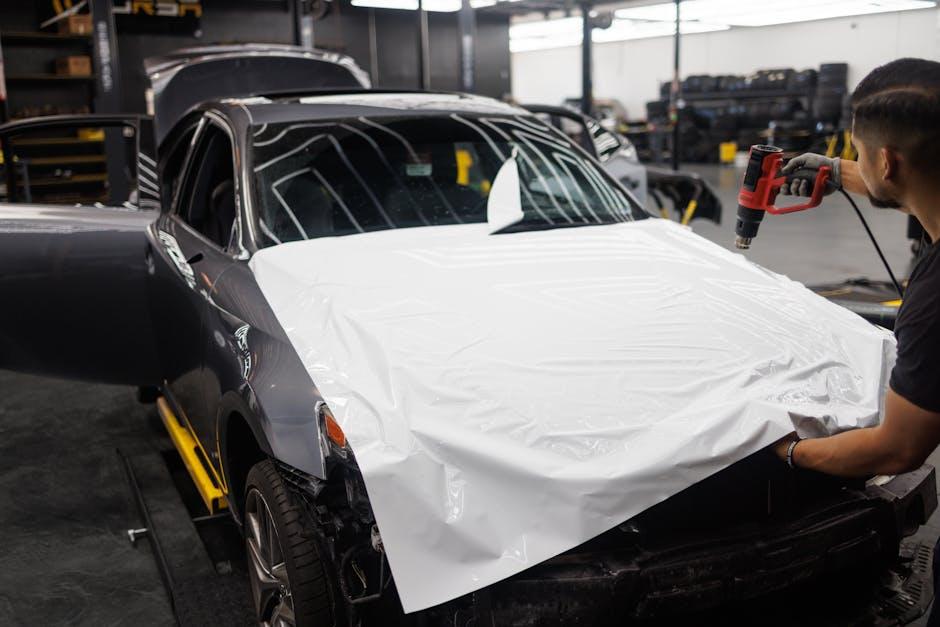
Evaluating Customer Reviews and Reputation in Your Community
Before entrusting your vehicle to any auto repair shop, it’s essential to dive into the collective experiences of past customers. Online reviews across platforms like Google, Yelp, and specialized automotive forums can provide invaluable insights into a shop’s reliability and service quality. Pay attention not only to the overall star rating but also to recurring themes in the comments. Look for mentions of transparent communication, punctuality, and fairness in pricing—these are hallmarks of trustworthy establishments.
Community reputation also plays a critical role in gauging dependability. Sometimes, the best recommendations come through local word-of-mouth. Here’s a quick checklist to help you sift through customer feedback effectively:
- Consistency: Frequent positive reviews across different channels increase credibility.
- Response to criticism: Shops that address negative comments professionally show commitment to customer satisfaction.
- Longevity: A shop with a longstanding positive presence in the community usually indicates stability and skill.
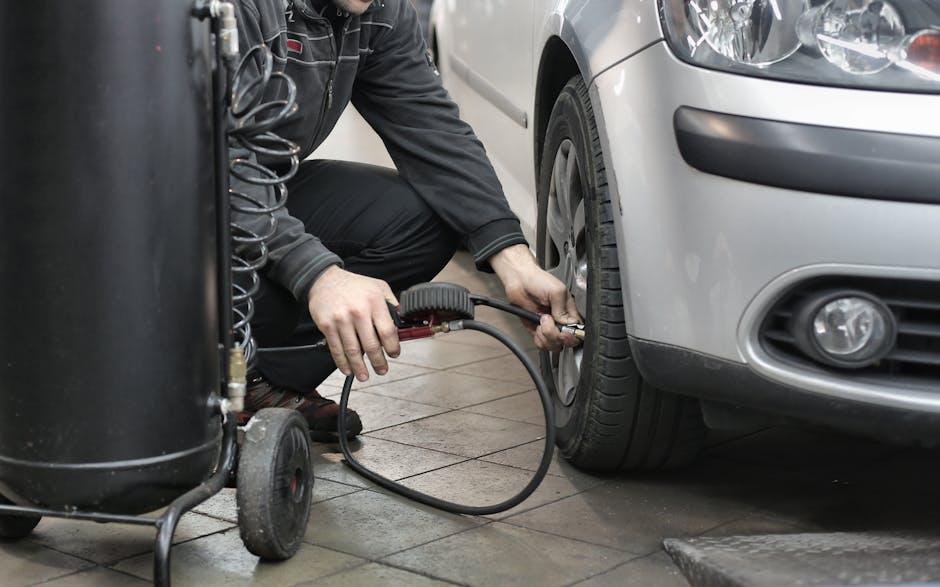
Understanding Transparency in Pricing and Service Estimates
One of the clearest signs of a trustworthy auto repair shop is its commitment to open communication about pricing. A reliable shop will provide detailed estimates before services begin, highlighting the cost of parts, labor, and any potential additional fees. This transparency builds trust and helps you avoid unexpected expenses. When you receive a service estimate, it should be straightforward and easy to understand, free from hidden charges or vague terms. Shops that offer written quotes and willingly explain each item demonstrate professionalism and respect for your decision-making process.
When comparing service estimates, consider how shops present their pricing data. Below is a simple guide to what you might look for in clear vs. unclear estimates:
| Aspect | Clear Estimate | Unclear Estimate |
|---|---|---|
| Breakdown of Costs | Explicit parts & labor costs listed separately | One lump sum total without details |
| Additional Charges | Potential fees disclosed upfront | No mention or surprise fees later |
| Written Documentation | Provided as print/email quotation | Only verbal or no record |
| Explanation of Services | Technicians explain repair necessity | Generic service descriptions |
- Ask questions about any unclear points.
- Compare multiple estimates for the same service.
- Trust shops willing to show their pricing structure.
By prioritizing transparency, you not only safeguard your finances but encourage a healthier, more honest repair experience.
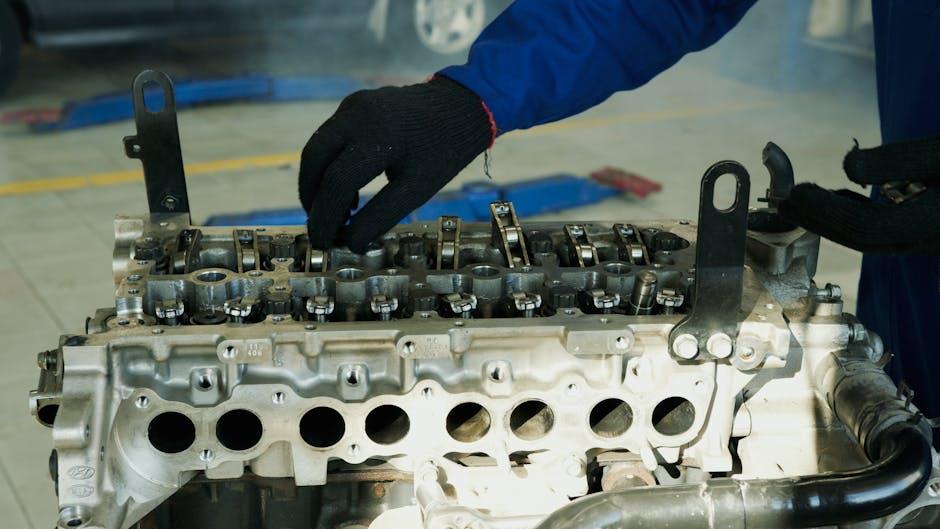
Assessing the Expertise and Specialization of Technicians
When it comes to entrusting your vehicle to a repair shop, the skill level of their technicians is paramount. Look for certifications such as ASE (Automotive Service Excellence), which demonstrate a technician’s commitment to staying updated with the latest industry standards. Experienced technicians often specialize in certain vehicle types or systems, such as transmissions, electrical components, or brake systems, ensuring your car gets targeted and knowledgeable care. Don’t hesitate to ask if the shop employs manufacturer-trained technicians, especially if you drive a brand with unique technical demands.
Key factors to consider when evaluating technician expertise include:
- Years of experience in the automotive repair field
- Specializations relevant to your car’s make and model
- Ongoing training and certification programs
- Reputation for diagnosing complex issues accurately
| Certification | Focus Area | Benefits |
|---|---|---|
| ASE Certified | General Repair | Trusted industry standard, broad expertise |
| Manufacturer Trained | Brand-Specific Systems | In-depth knowledge of specific models |
| Electric Vehicle (EV) Specialist | EV Technology | Expertise in newer, eco-friendly cars |
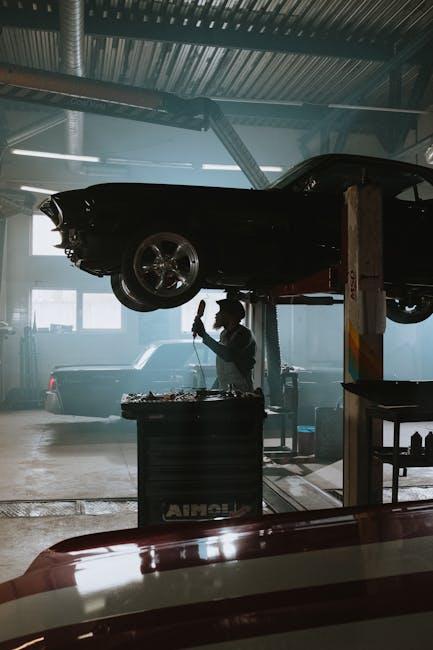
Exploring Warranty Policies and Post-Repair Support
When entrusting your vehicle to an auto repair shop, understanding their warranty terms and post-repair services is crucial. A reliable shop will offer clear, written warranties that cover both parts and labor, providing peace of mind long after you’ve left the premises. Look for shops that back their work with guarantees ranging from 30 days to a year, and don’t hesitate to inquire how they handle issues that may arise after the repair. This transparency reflects their confidence in the quality of their workmanship and parts used.
Post-repair support can often be a decisive factor in choosing the right shop. Excellent shops might provide:
- Free follow-up inspections to ensure repairs hold up.
- Flexible appointment scheduling for any warranty-related concerns.
- Direct communication channels with the technicians who worked on your vehicle.
Paying attention to these services means you’re not just getting a quick fix — you’re investing in a relationship that values your vehicle’s longevity and safety.

Visiting the Shop: What to Look for in Facilities and Customer Care
When you step into an auto repair shop, the atmosphere often tells more than just the sign outside. A clean, organized workspace reflects a shop that values precision and professionalism. Look for well-maintained equipment and a neat waiting area — these are signs the shop respects its customers and their vehicles. Friendly staff who engage politely and patiently answer questions also indicate genuine customer care. If the technicians willingly explain repairs and offer transparent pricing, you’re likely dealing with a trustworthy establishment.
Beyond appearances, certain key factors can signal reliability. Consider these points:
- Certifications and licenses: Technicians should hold relevant certifications like ASE to ensure qualified service.
- Warranty and guarantees: Reliable shops stand by their work with warranties on parts and labor.
- Customer reviews and testimonials: Look for positive feedback emphasizing good communication and punctual service.
- Transparency in estimates: The best shops provide detailed, written cost estimates before beginning work.
| Facility | What to Check |
|---|---|
| Waiting Area | Clean, comfortable, and with amenities like Wi-Fi or coffee |
| Repair Bays | Organized tools, proper lighting, and no clutter |
| Customer Service Desk | Staff responsiveness and clear communication |
| Vehicle Drop-off Process | Simple paperwork and transparent vehicle check-in |
Q&A
Q&A: How to Choose a Reliable Auto Repair Shop
Q1: Why is choosing a reliable auto repair shop important?
A1: Your car is more than just a means of transportation—it’s an investment in your safety and convenience. A trustworthy repair shop ensures quality repairs, saves you money in the long run, and gives you peace of mind while on the road.
Q2: What are the first signs that an auto repair shop is reliable?
A2: Look for clear communication, transparent pricing, and certifications such as ASE (Automotive Service Excellence). Friendly staff who patiently explain the repairs and offer detailed estimates are usually good indicators of professionalism.
Q3: How can I verify a repair shop’s credentials?
A3: Check for certifications, licenses, and memberships with reputable industry organizations. Online reviews and ratings on platforms like Google, Yelp, and the Better Business Bureau also provide insights into other customers’ experiences.
Q4: Should I ask about warranties before agreeing to repairs?
A4: Absolutely. A reliable shop typically offers warranties on parts and labor. Ask about the warranty’s duration and what exactly it covers to avoid surprises after the job is done.
Q5: Is it better to choose a dealership or an independent repair shop?
A5: Both have pros and cons. Dealerships often specialize in specific brands and may charge more, while independent shops may offer more personalized service and competitive pricing. The key is to ensure whichever you choose has a solid reputation and qualified technicians.
Q6: How important is it to get multiple estimates?
A6: Very important. Getting two or three estimates helps you understand the fair market price and services needed. Beware of prices that seem too good to be true—they might indicate low-quality parts or rushed workmanship.
Q7: Can I rely solely on online reviews to pick a shop?
A7: Online reviews are helpful but shouldn’t be your only research tool. Talk to friends and family for recommendations, visit the shop to assess cleanliness and organization, and trust your instincts when meeting the staff.
Q8: What questions should I ask during my first visit?
A8: Ask about their experience with your car’s make and model, the types of parts used (OEM vs. aftermarket), turnaround time, and payment options. Don’t hesitate to inquire about their diagnostic process and how they handle unexpected repairs.
Q9: How can I spot a scam or dishonest practices?
A9: Watch out for upselling unnecessary repairs, vague explanations, or technicians unwilling to show you the damaged parts. A reliable shop should provide clear, honest communication and respect your questions.
Q10: What ongoing relationship should I aim for with my auto repair shop?
A10: Aim for a partnership based on trust and transparency. A good shop becomes your go-to for routine maintenance and emergency repairs alike, helping your car run smoothly and safely over time.
Choosing the right auto repair shop doesn’t have to be a gamble. With a bit of research and the right questions, you can find a partner to keep your vehicle—and your journey—on the road to reliability.
The Conclusion
Choosing the right auto repair shop can feel like navigating a maze, but with a clear map of what to look for—trustworthiness, expertise, transparency—you can turn that journey into a smooth ride. Remember, your car deserves more than just any fix; it deserves care from those who value quality as much as you do. So next time your vehicle calls for help, trust your judgment, do your homework, and steer confidently toward a shop that treats your car like its own. Because in the end, the road to peace of mind is paved with good choices.
